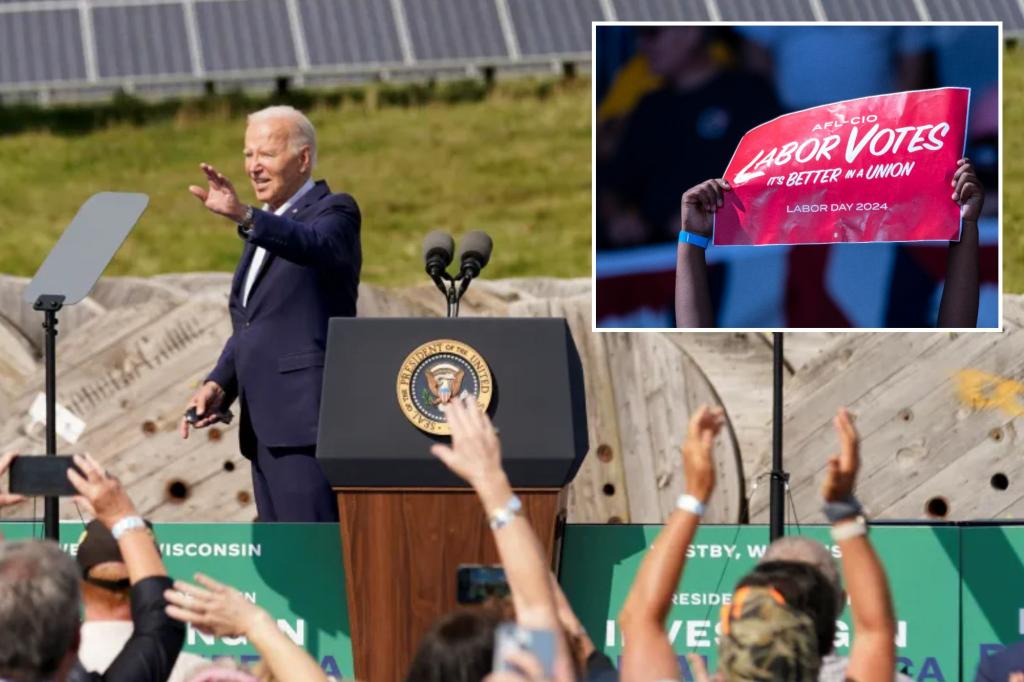President Joe Biden visited a small town in western Wisconsin to discuss his infrastructure and energy spending initiatives at a local electrical supply company. During his speech, Biden took jabs at his predecessor, Donald Trump, and highlighted the significance of his investments in rural electrification, comparing it to FDR’s New Deal and claiming to have done more for transportation modernization than any president since Eisenhower.
The bipartisan infrastructure bill passed in 2021 allocated $3.1 billion for projects in Wisconsin, but Wisconsinites are hesitant due to the strings attached to the spending. One major point of contention is the requirement to pay prevailing wage, which some criticize for artificially inflating project costs and favoring union contractors over merit-based shops. Critics argue that this could limit competition and result in fewer improvements to the state’s infrastructure.
Wisconsin is a right-to-work state, meaning union membership is voluntary. However, Vice President Kamala Harris has expressed dissatisfaction with the state’s labor laws and has promised to outlaw right to work during a visit with Biden. Industry insiders note that most Wisconsin contractors operate on a merit-shop basis, paying employees based on experience and ability rather than a negotiated union wage. They argue that prevailing wage requirements could hinder the ability of merit-based shops to compete for federal projects.
Cheryl Sment, President & CEO of Interstate Sealant & Concrete, emphasizes the importance of having the best contractors work on infrastructure projects to ensure quality and cost-effectiveness. She raises concerns about the impact of prevailing wage on the cost of construction and the effectiveness of infrastructure improvements. John Schulze, who leads legal and government relations at a trade association for builders and contractors in Wisconsin, points out that prevailing wage restrictions may limit opportunities for construction employees to advance and become business owners.
Schulze criticizes President Biden for supporting prevailing wage, suggesting that his ties to unions and their significant financial contributions to Democratic politicians may be influencing his policy decisions. He predicts that unions will continue to support Vice President Harris in future elections and expect favorable policies in return. Wisconsin Governor Tony Evers, a Democrat, recently announced that the state has received a portion of the funding pledged by the Biden administration under the Bipartisan Infrastructure law, indicating progress in the implementation of the infrastructure projects in Wisconsin.
The debate over prevailing wage and labor laws in Wisconsin reflects broader concerns about the impact of federal infrastructure spending on local industries and communities. While President Biden’s initiatives aim to modernize transportation and improve infrastructure nationwide, the implementation of these programs may face resistance and criticism from stakeholders who question the efficacy and fairness of prevailing wage requirements. The intersection of politics, labor, and business interests in the infrastructure sector demonstrates the complexities of enacting comprehensive policies that balance economic development with labor rights and competition.














